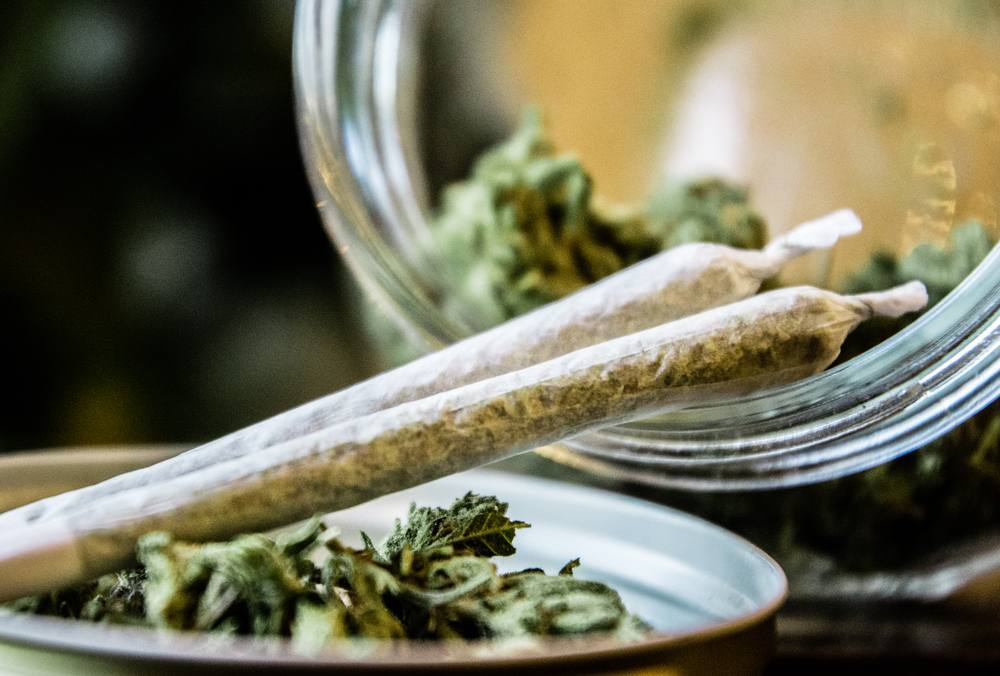With growing conversation around putting weed legalization on the table in Illinois, many people are most likely wondering what to expect if it’s made legal here. With some research on both sides of the argument, let’s take a look at what it can do for the state.
Update: Governor J.B. Pritzker signed a historical bill on Tuesday, June 25, 2019 to legalize recreational Marijuana in Illinois. Weed will be legal in the state on January 1, 2020.
Pro: Boost economy
 With an overdue budget recently set, the money for education and other local sectors is definitely needed. Considering how it has improved Colorado, legalizing weed could provide this much needed economic boost. In 2016, Colorado topped $1.1 billion in legal sales of recreational marijuana, according to Fortune. Forbes added how the state would yet again hit another milestone of half a billion in tax revenue this year. Think of how this kind of revenue can rejuvenate our state, from paying off rising bills and debts, to allowing for financial improvement where it’s needed most.
With an overdue budget recently set, the money for education and other local sectors is definitely needed. Considering how it has improved Colorado, legalizing weed could provide this much needed economic boost. In 2016, Colorado topped $1.1 billion in legal sales of recreational marijuana, according to Fortune. Forbes added how the state would yet again hit another milestone of half a billion in tax revenue this year. Think of how this kind of revenue can rejuvenate our state, from paying off rising bills and debts, to allowing for financial improvement where it’s needed most.
Con: Second-hand smoke
Imagine going to your favorite concert venues or lakefront hangout spots, only to come across marijuana smoke from passersby. With tobacco smoking, signs helped regulate the issues, but would the same be done in this case? Regulation like this does not come cheap. Those who prefer not to smoke may experience more than just coughing. A recent study on second-hand weed smoke performed on rats showed possible effects akin to tobacco. Second-hand smoke may also pose health problems to vulnerable populations, like children or people with asthma.
Pro: Less crime
With drug trafficking persisting as a major issue in cities like Chicago, the solution of legalizing marijuana could break it down. Legalizing an illegal recreational drug would remove it out of the black market. With organized gangs profiting in the drugs, they would get hit where it really hurts – their wallets. This kind of method has already gained results when Denver saw a 2.2 percent drop in violent crime after the first year of legal recreational weed sales in Colorado.
Con: Health issues
As a recreational drug, marijuana has shown different health outcomes depending on frequency of use. Breathing problems that result from habitual marijuana use show similar damage to lungs found in tobacco smoking. Chances of heart attack increase since marijuana raises the heart rate. Smoking weed during pregnancy could also be detrimental in the early development of a child. With much debate on the health benefits and problems raised from frequent marijuana use, safety precautions and age regulation are just a few things that Illinois would have to look out for.
Pro: Wider access for medical purposes
 With marijuana legalization, Illinois could open regulation for its medicinal use in hospitals and pharmacies. From last year’s qualifications for medical marijuana usage in the state, legalization would allow for less strict regulation. Instead of just being used for several debilitating conditions, it can be expanded and used for the treatment of anorexia, alcoholism, PTSD, etc.
With marijuana legalization, Illinois could open regulation for its medicinal use in hospitals and pharmacies. From last year’s qualifications for medical marijuana usage in the state, legalization would allow for less strict regulation. Instead of just being used for several debilitating conditions, it can be expanded and used for the treatment of anorexia, alcoholism, PTSD, etc.
Con: Increase in driving incidents
With a steady increase of traffic fatalities in Illinois, it could very well rise as a result of weed legalization. With cities like Springfield and Chicago, heavy traffic could threaten those smoking behind the wheel. Although evidence of weed smoking and driving is still debatable, there are plenty of possible accident scenarios. Increasing accidents, fatalities and damages from the result of this would only add a few more bills to city and state budgets.
To Sum It Up…
Illinois’ decision on the matter really comes down to how effectively it can be used to aid the state financially, as well as how effectively it can be regulated. Will we put it to the test? Time will tell.


